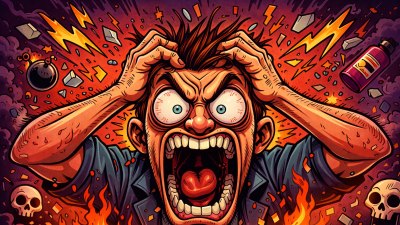The Mandela Effect: Are We Living in Parallel Realities?
Is reality glitching? Explore the Mandela Effect and the mind-bending theory that our false memories could be proof of parallel universes or alternate timelines

This image was created with the assistance of DALL·E
Have you ever sworn something was true—only to find out it never was? Like remembering the Monopoly man with a monocle (he doesn't have one), or believing that “Looney Toons” was spelled with two O’s (spoiler: it’s “Looney Tunes”).
Welcome to the Mandela Effect, a mind-twisting phenomenon where large groups of people remember things differently than how they actually happened. Some call it a memory glitch. Others believe it’s evidence of parallel realities colliding.
So what’s really going on here? Is it bad memory, groupthink, or something more cosmic? Let’s explore the psychology, pop culture, and metaphysical theories behind this modern mystery.
What Is the Mandela Effect?
The term was coined by paranormal researcher Fiona Broome, who realized that many people believed Nelson Mandela died in prison in the 1980s—when in fact, he was released and went on to become president of South Africa.
Since then, thousands of people have come forward with similar strange misremembered facts that don’t match historical records.
Some of the most famous Mandela Effect examples:
- Berenstain Bears vs. Berenstein Bears
- “Luke, I am your father” (actual line: “No, I am your father”)
- Fruit of the Loom logo — many recall a cornucopia that doesn’t exist
- Febreze — commonly remembered as Febreeze
- KitKat — no dash, despite many memories of one
It’s more than just a typo—these memories feel visceral to people, like they lived through a version of reality that no longer exists.
The Psychology of False Memories
Before we dive into the multiverse, let’s look at what science says.
Psychologists explain the Mandela Effect through false memory formation. Our brains:
- Reconstruct memories rather than store perfect “files”
- Fill in gaps with assumptions or associations
- Are influenced by cultural cues, repetition, and peer reinforcement
This means we’re all susceptible to shared memory distortions, especially for things from childhood or pop culture.
But that doesn’t explain everything…
The Parallel Universe Theory
One of the most compelling (and wild) explanations is the multiverse theory—the idea that multiple versions of reality exist at once, and we may unconsciously shift between them.
In this view:
- The Mandela Effect is a glitch in the matrix
- We remember versions of events from alternate timelines
- Our consciousness might be shifting between parallel worlds
This theory is fueled by quantum mechanics, which suggests particles can exist in multiple states until observed. If that applies to the universe as a whole… the Mandela Effect might be more than a memory hiccup.
Why Are We So Obsessed With the Mandela Effect?
Psychologically and spiritually, the Mandela Effect taps into:
- A fear of losing control over reality
- A fascination with mystery and hidden truths
- A desire to believe in something bigger than this life
- A growing distrust in mainstream narratives
It also mirrors our culture’s growing awareness of the fluid nature of reality, especially in the digital age where facts can be edited, deleted, or distorted in real time.
Pop Culture and the Rise of Reality Bending
The Mandela Effect fits perfectly into modern pop culture obsessions with alternate timelines and simulated realities. Think:
- The Matrix
- Everything Everywhere All at Once
- Black Mirror
- Loki and the Marvel multiverse
- Stranger Things’ Upside Down world
These shows and films don’t just entertain—they reflect our growing sense that reality isn’t as fixed or certain as we once believed.
Could It All Be Real?
Whether you see the Mandela Effect as a brain glitch or proof of multiverse hopping, it raises important questions:
- What is real?
- Can we trust our memories?
- Are we living in just one version of reality… or many?
And maybe the bigger takeaway is this: reality isn’t just about facts—it’s about perception, memory, and belief.
Have You Experienced the Mandela Effect?
Have you ever been absolutely sure of something that turned out to be totally different?
🌀 Share your favorite Mandela Effect example in the comments—and tell us whether you think it’s bad memory or something much, much stranger.
For more brain-bending insights into psychology, pop culture, and the paranormal, keep exploring LifeShouts.com.




















